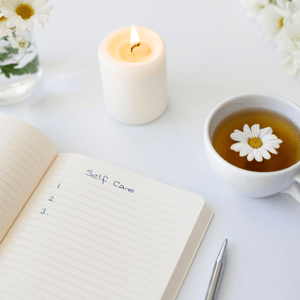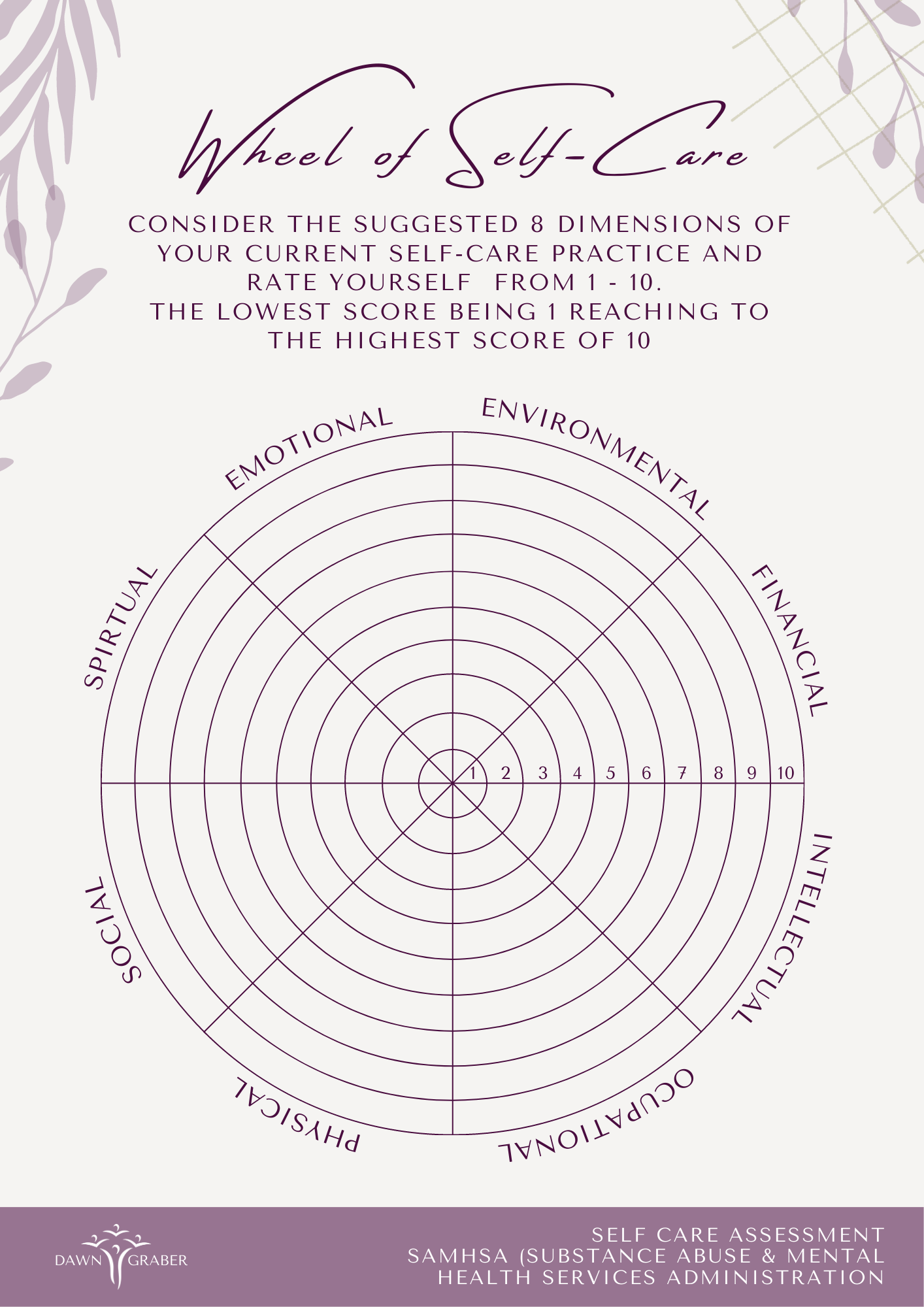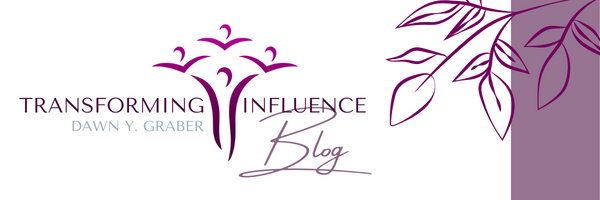Self-Care: A Process AND A Practice, Part 1
Self-Care’s Relationship to Well-Being
We know the charge “to put one’s oxygen mask on before helping others.” Yet, especially as women and those in helping professions, we tend to put our well-being at the back of the line. We are an American culture of overworking hyper achievers, with a twisted sense of pride about that, and expect team members to do the same. We grow up hearing about the American dream, but too many find that pulling ourselves up by our bootstraps doesn’t pan out equitably across demographics; consequently, the stress builds and continues, and our wellness suffers. The recent pandemic reduced the bandwidth for creative engagement in not only ourselves but our team members, their families, and even our clients. We are most likely now understaffed in a growing polarized environment (think of the 2024 presidential election underway) full of more silos and conflict than in our recollection of the recent past. How are we caring for ourselves or justifying the need or time for self-care? Our well-being depends on self-care.
Despite all the difficulties in making self-care a priority, we must acknowledge that engaging in routine self-care has been shown to bring many positive results that we’d be crazy to ignore. We know that self-care decreases anxiety and stress, increases happiness, protects from disease, reduces healthcare costs, builds more meaningful relationships, increases one’s ability to more quickly recover from negative setbacks, and even reduces heart disease, cancer, and stroke. Of course, we want to be better at self-care. But doing so is easier said than done.
What really is self-care?
The Evolution of Self-Care
The first publication featured the phrase “self-care” in 1946. In 1981 the term was added to the Medical Subject Headings of the National Library of Medicine. By 2015 over 2547 articles could be found with Self-Care as its focus. (Self-care research: Where are we now? Where are we going?) Definitions abound of what self-care truly is, and this adds to the confusion of how to support it within our team members and businesses. Here are a few ways self-care might be described:
added to the Medical Subject Headings of the National Library of Medicine. By 2015 over 2547 articles could be found with Self-Care as its focus. (Self-care research: Where are we now? Where are we going?) Definitions abound of what self-care truly is, and this adds to the confusion of how to support it within our team members and businesses. Here are a few ways self-care might be described:
- Self-care is “the self-initiated behavior that people choose to incorporate to promote good health and general well-being.” (Nurses' stress & burnout. How to care for yourself when caring for patients and their families experiencing life-threatening illness)
- Self-care is an investment of attention to what a person needs that yields immediate and long-term physical, emotional, spiritual, and mental benefits with positive outcomes in one’s personal and professional life.
- Self-care is practicing healthy habits to be the competent, rechargeable, hopeful, resilient leader we need to be to lead our organizations fully.
- “Self-care is about giving ourselves the resources that we need- the emotional, the physical, the social resources so that we can show up and be the best version of ourselves, first of all for ourselves, because we should do it for ourselves, but then also for the people in the communities that we care about.” (Personalizing your self-care journey to help meet you where you are).
- Self-care means intentionally prioritizing our relationship with ourselves by tuning into ourselves and meeting the unique needs of today with rejuvenating practices that work for us in promoting well-being and health.
- “Self-care is a proactive, holistic, and personalized approach to the promotion of health and well-being through various strategies, in both personal and professional settings, to enhance capacity for compassionate care of patients and their families.” (Exploring the meaning and practice of self-care among palliative care nurses and doctors: a qualitative study)
What does self-care mean to you? It’s much more than wearing sunscreen or soaking in a hot bubble bath. It’s not a woo-woo nicety. Self-care is imperative for ourselves and our team members to live meaningful, happy lives with impactful relationships so that all of our integrated selves can help our organizations flourish to the highest power. It’s a both, and. As leader, you have to take the initiative to model and establish a self-care culture. But first, we need to honestly assess how we are doing at self-care with a definition with which you can agree and keep front and center. How would you write your definition of self-care at this point in time?
Assessing Our Self-Care Practice
Now that we’ve explored a sampling of definitions of self-care, we need to assess how we care for our holistic self. According to the National Council for Mental WellBeing, our self-care goals should focus on the following five buckets:
- Take care of your physical and psychological health
- Manage and reduce stress.
- Recognize your emotional and spiritual needs
- Foster and sustain relationships
- Achieve balance in different areas of your life (How and Why to Practice Self-care)
Another way to assess our current understanding and practice of self-care is to rate our own wellness, as SAMHSA defines in their suggested eight aspects of wellness for human beings. To bring self into wellness, we need to hone intentional awareness of self-care, develop a process to build self-care, and then practice attending to our emotional, spiritual, intellectual, physical, environmental, financial, occupational, and social selves. Use the following wheel to assess your success at caring for yourself and where you need more processes to be built and/or practices developed. Let’s explore how these dimensions relate to self-care with some examples. Make each category meaningful to you with your definitions of how wellness looks for you. 
Emotional self-care may include acts that invite and allow for feelings to be captured and expressed. Is it the warm feelings that develop from golfing with a friend, sharing a cup of coffee, how you feel after you journal, have a good cry or hug, or welcome the emotions that bubble up within from great music or beauty?
Environmental self-care is appreciating and bettering one’s space, by organizing, recycling, cleaning, and getting enough time outdoors in the vitamin D of the sun, the blue of the sky, and the wonder of the stars that together reduce blood pressure and release endorphins.
Financial self-care is putting in the effort to know the status of one's resources, making adjustments when needed to provide for personal needs, and determining how many of your wants need to become a reality.
Intellectual self-care is practicing the growth mindset as a continual learner. It's being curious with open eyes and heart to realize there’s more to know, apply, and test in this world. Learn something new. Take a class. Make a list of books and podcasts to take in this year and celebrate what is in your toolbelt because you sought more understanding.
Occupational self-care requires us to look at our income-generating life and how it dovetails with who we are. Are you in the right seat on the bus? Are you aware of advancement opportunities and how and if you might get there? Are there enhancements to your social media presence, resume, and skill set that you plan to improve? Or perhaps your self-care needs are actually calling to reduce your involvement in work commitments for your enhanced well-being?
Physical self-care is an element we are more familiar with but resist acting on its future consequences by too often determining to live only in the moment. Our desires for the doughnut, to skip the gym routine, stay up too late, or have that second glass of wine have us putting off ever starting a consistent physical self-care practice.
Social self-care honors the need for relationships, the back and forth with friends and family that helps one feel chosen, needed, and cherished. We have fewer friends than decades ago and are too often siloed with Netflix binging and consuming more sports channels than is healthy.
Spiritual self-care refers to paying attention to what one believes about one’s higher purpose in life. Why are you on earth at this time? What is your motivation to leave a legacy, and with whom? How do you take time to connect with your understanding of your guiding force (prayer, reflection, silence, worship) to receive your true north marching orders of how you want to show up in this world?
Next Steps
Believe in the research that shows us that we are holistic beings needing self-care in multiple areas of our lives. Believe the data that shows the most effective leaders prioritize practicing self-care and make ways for team members to do the same. You are not an outlier who does not need more attention to your self-care practices. Now that you’ve considered your definition of self-care and assessed your dimensions, start thinking of what more you can do to lean into your individualized self-care plan. Next month, we’ll further unpack why women and helping professions especially need increased self-care. We’ll look at how your work culture can prioritize and benefit from individuals and teams elevating self-care. Lastly, we’ll look at some practices to help us each better care for ourselves. Stay tuned for July’s Self-Care: A Process AND A Practice, Part 2.
multiple areas of our lives. Believe the data that shows the most effective leaders prioritize practicing self-care and make ways for team members to do the same. You are not an outlier who does not need more attention to your self-care practices. Now that you’ve considered your definition of self-care and assessed your dimensions, start thinking of what more you can do to lean into your individualized self-care plan. Next month, we’ll further unpack why women and helping professions especially need increased self-care. We’ll look at how your work culture can prioritize and benefit from individuals and teams elevating self-care. Lastly, we’ll look at some practices to help us each better care for ourselves. Stay tuned for July’s Self-Care: A Process AND A Practice, Part 2.
Transforming influence alongside you,

Resources Used in This Month’s Blog:
- Nurses' stress & burnout. How to care for yourself when caring for patients and their families experiencing life-threatening illness. By Deborah Witt Sherman
- Self-care research: Where are we now? Where are we going? International Journal of Nursing Studies
- Exploring the meaning and practice of self-care among palliative care nurses and doctors: a qualitative study. By Jason Mills, Timothy Wand & Jennifer A. Fraser
- Personalizing your self-care journey to help meet you where you are. Self-Care Summit. May 2023. Gobin, R.
- How and Why to Practice Self-care by Mental Health First Aid USA
- Learn the eight dimensions of wellness.
- What is Self-Care and Why is it Important For You? by Matthew Glowiak
Additional resources supporting Self-Care:
- Rest Is Resistance: A Manifesto. by Tricia Hersey
- Emotional Inflammation: Discover Your Triggers and Reclaim Your Equilibrium During Anxious Times by MD Van Susteren, Lise and Stacey Colino
- Sacred Rest: Recover Your Life, Renew Your Energy, Restore Your Sanity by Dr. Saundra Dalton-Smith

June 8, 2023

Comments